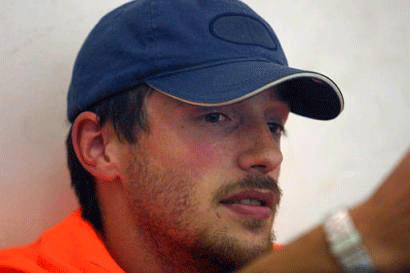Tag: Rafah
-
Remember Tom
11th April 2014 | International Solidarity Movement | Occupied Palestine The International Solidarity Movement today remembers Tom Hurndall, an ISM volunteer who was shot in the head by an Israeli sniper in Gaza. This terrible injury left Tom in a coma for nine months and he died January 13th 2004, at the age of 22.…
-
Bahaa runs for Palestine
4th March 2014 | International Solidarity Movement, Rosa Schiano | Gaza, Occupied Palestine In the shadow of the bleachers of Yarmouk stadium in Gaza City, still damaged by Israeli bombing, 400-meter Olympic runner Bahaa Al Farra trains. Bahaa took part in the London Olympics, along with three other Palestinian athletes, in 2012. “I started racing at the age…
-
Besieged Gaza Strip battered by historic storm
16th December 2013 | International Solidarity Movement, Silvia Todeschini and Henni | Gaza, Occupied Palestine Gaza’s bad weather has disrupted access lines and flooded whole areas. Thousands of families have been evacuated. Numerous injuries and two deaths have been reported. The Zionist siege and occupation contribute to aggravating the situation for tens of thousands of people.…



